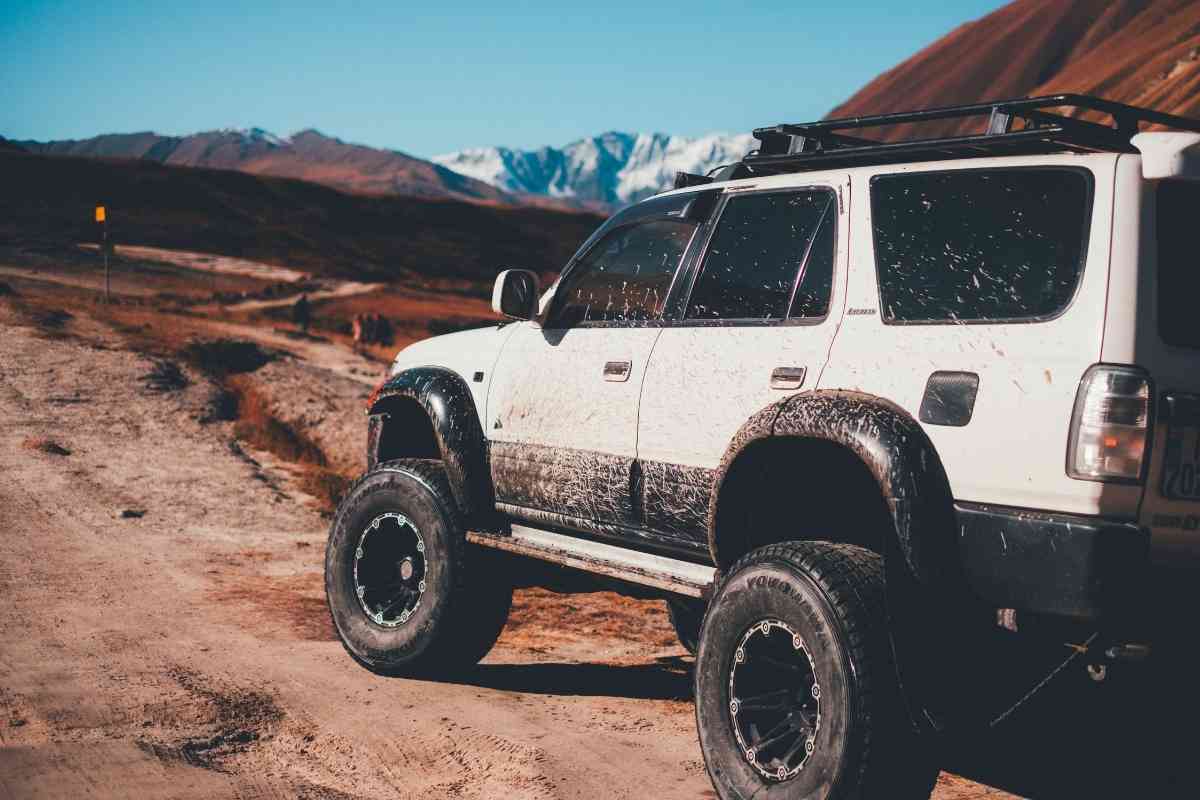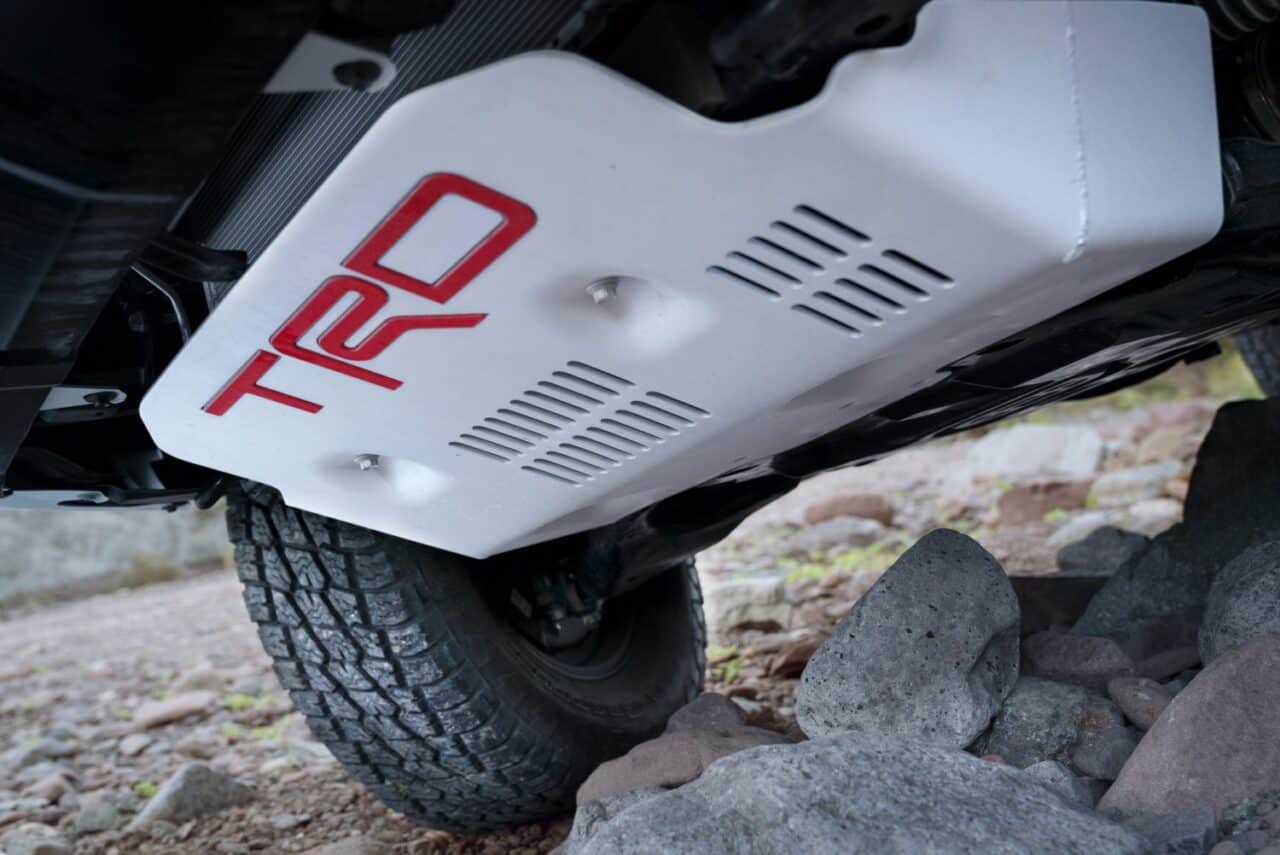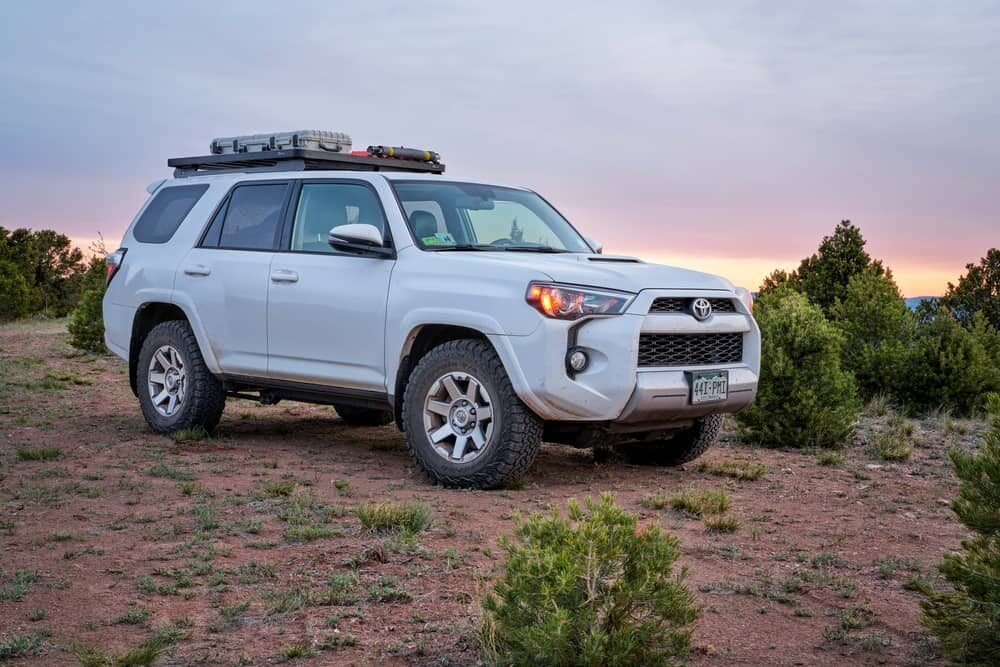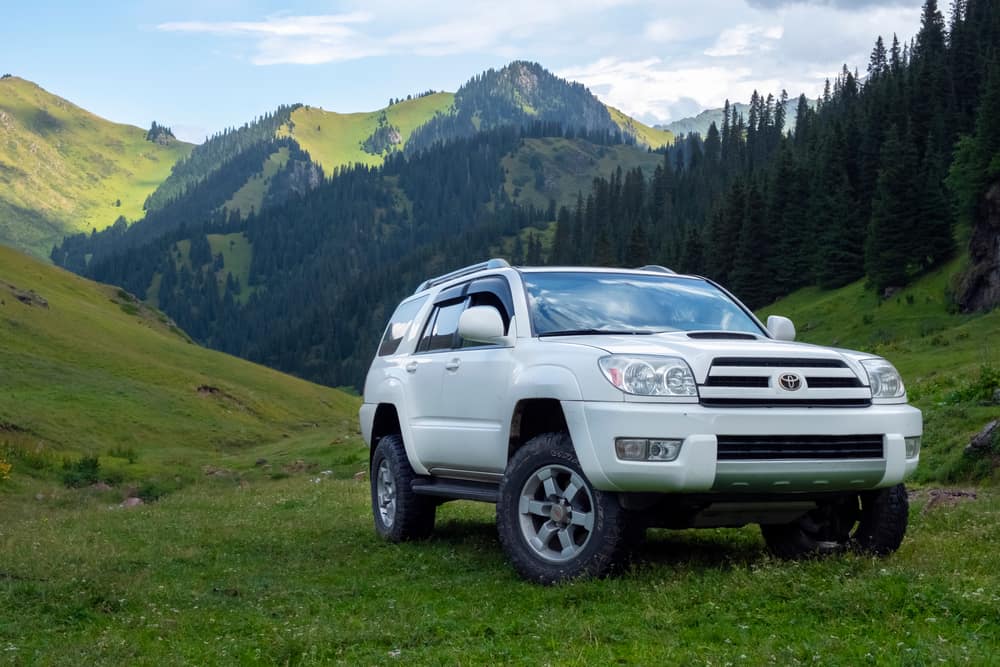How Much Does It Cost To Wrap A Toyota 4Runner?
The Toyota 4Runner is an excellent platform for modifications. Thanks to its body-on-frame construction, a reliable engine, and high ground clearance, the Toyota 4Runner can handle bigger tires, winches, and bumpers. If you want to modify the looks, you can wrap your car in creative vinyl to express your ride’s identity. So, let’s find out more about this process.
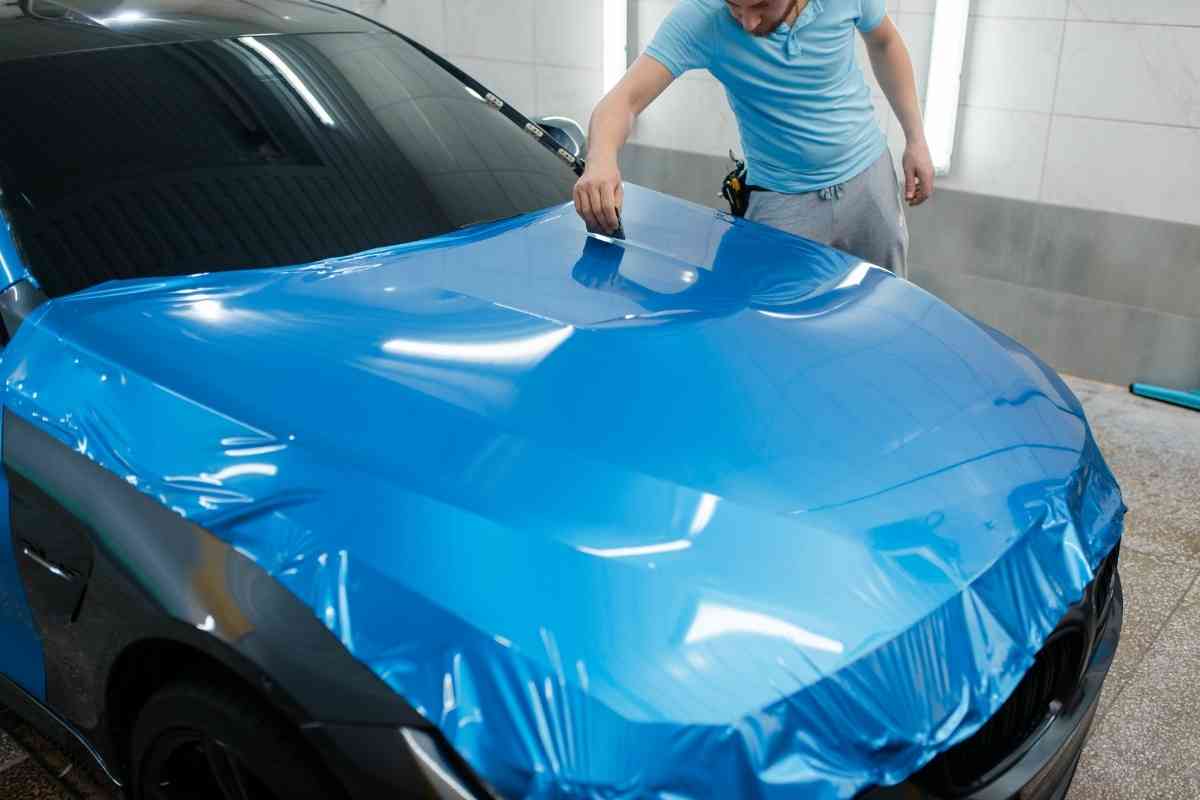
How Much Does It Cost To Wrap A Toyota 4Runner?
Wrapping a Toyota 4Runner starts as low as $1,500, but on average, it can cost about $3,500. Specialized treatments like chrome or carbon-fiber finishes are more expensive. These can start at $6,000.
Costs vary due to several reasons. Standard colors and finishes are less expensive. As you move into more complex patterns and textures, you find yourself paying more.
Vinyl wrapping is a quick way to change your car’s appearance. The process consists of covering the entire vehicle in a thin, adhesive material to resemble a new paint job. While the process doesn’t take long, there are some critical steps to follow to ensure it comes outright.
Besides the vehicle’s size, for which you will need more material, the vehicle’s shape also affects the cost. Cars with curvier bodies, such as sportscars, tend to be more expensive. The rounded bodies require more caution to avoid any bubbles and ensuring a uniform application.
Not all vinyl wraps aim to change your vehicle’s appearance radically. Some help increase the shine, such as clear coats, and others help protect the car’s body. A good, high-quality vinyl will last for years, but it’s not immune to the elements. Some factors can damage the material and reduce the useful life.
Before we get into topics such as how long it can last, let’s find out more about a car wrap.
What Is A Car Wrap?
When you wrap a car, you’re covering the surface of your vehicle with wrapping material. The most common material is Poly Vinyl Chloride or PVC. But, this material comes with many additives that add stretching and adhesive abilities.
Besides adding plasticizers, which increase flexibility, other components include pigments for color and glue. When it comes to the adhesive, it uses water as an activating agent. Water is ideal since it doesn’t damage the car’s body and easy to apply.
While most car wraps come in sheets, some come in molds. These are more expensive but have better adhesion. So, now that we know what a car wrap is, let’s talk about how the process works.
How Do You Wrap A Toyota 4Runner?
The first step to wrapping a Toyota 4Runner, or any car for that matter, a specialist checks the entire vehicle for any signs of damage. We’ll get further into detail on this, but this inspection ensures the car is in a good state. Vinyl wraps do not cover body damage.
After the inspection, technicians clean the car. But, it’s no regular cleaning. It’s a specialized decontamination process that ensures there are no wax, grease, and contaminants on the surface.
Professional shops go through a clay treatment. This process is a more precise clean that removes small particles such as brake dust, pollen, and other particles. Though very small, these can cause undesired bubbles.
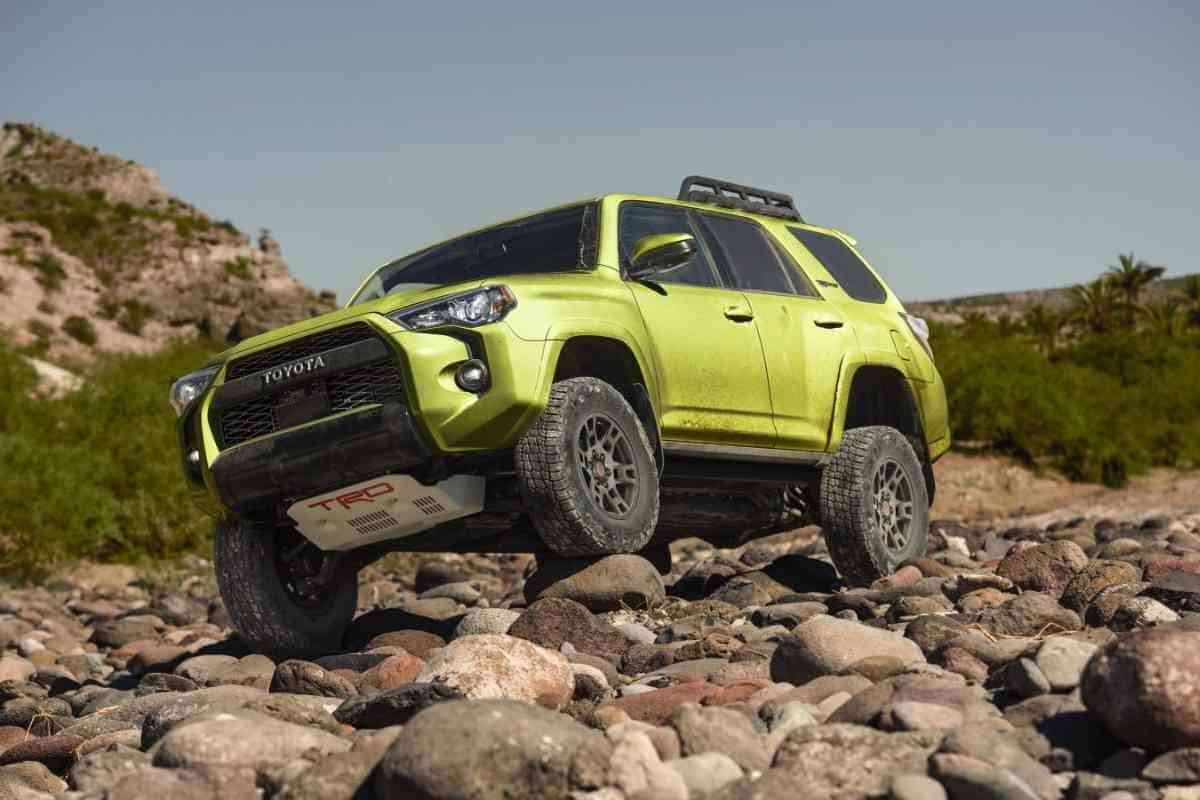
Once the car is clean, some shops remove headlights, taillights, ornaments, and bumper covers. This step is personal preference, but it ensures a more uniform application, especially if the car has a complex body shape.
A technician applies the vinyl wrap and uses a heat gun to mold the sheets to conform to the body. They use a soft scraper to eliminate any bubbles. Some wraps require more layers, usually the more complex or that use different colors.
How Long Does A Car Wrap Last?
A professionally applied car wrap can last from five to seven years with the proper maintenance. Several factors can affect your wrap’s longevity.
Direct sunlight is the first and most important. Yes, the best wraps come with UV protection, but excessive exposure to the sun eventually dries out the material.
Other elements like snow or excessive rain also affect its longevity. Though the wrap is water-resistant, it isn’t waterproof. If you live in areas with heavy precipitation, eventually, the material gets saturated and begins to blister.
Gravel and pebbles can damage the vinyl. Driving on gravel roads can launch smaller rocks into your car, causing something known as stone chipping.
Ironically, the pebbles might cause tears and holes, but the vinyl can be a barrier to the car’s paint.
Another factor that you need to take into consideration is car washing. As we’ve written before, some car washes can damage your vehicle due to the high-pressure jets.
A vinyl wrap is no exception. It’s best if you wash the car by hand, with a soft rag and non-abrasive cleaners. If you need to take it to a car wash, be sure to use the lowest pressure possible and stand no less than a foot away from your vehicle.
If you want your car wrap to last for as much as possible, the best solution is to keep it indoors. Not everyone has a garage, so another alternative is using a ceramic coating. This layer is a tougher outer shell that covers the wrap and protects your vehicle.
When you apply a ceramic coating correctly, it will not crack and allow the vinyl to coat the car’s body adequately. So, we’ve spoken about how to care for your vinyl wrap. But one frequent question is whether the car wrap damages the paint. Let’s find out.
Will A Vinyl Wrap Damage The Paint On My 4Runner?
A vinyl wrap doesn’t damage the car’s paint. If it’s a high-quality product, a vinyl wrap can protect the body by adding another layer between the vehicle and the elements.
It’s important to note, in this part, that all of these conditions refer to a car that has factory paint.
Manufacturers paint cars in steps. They apply a series of paint coats; then, they apply a series of clear coats. For example, some manufacturers use five paint coats and one clear. If you’ve had your car painted in a third-party body shop, you must ensure that they use high-quality products.
Anything you put on a car that doesn’t have a professional paint job professionally might damage the vehicle. For example, if your 4Runner has Toyota’s factory paint and no visible damage, then a vinyl wrap will not damage it.
Removing the vinyl is also critical. Though it seems easy, you shouldn’t start peeling off the vinyl if there are signs of damage. Trained technicians use different tools to remove the material, thus ensuring the best finish.
But, wrapping your car isn’t only about expressing your tastes. It might also have commercial use.
For example, you might wrap your Toyota 4Runner in a brand that you represent. But, it means changing the appearance of your car. So, is it legal? Let’s find out.
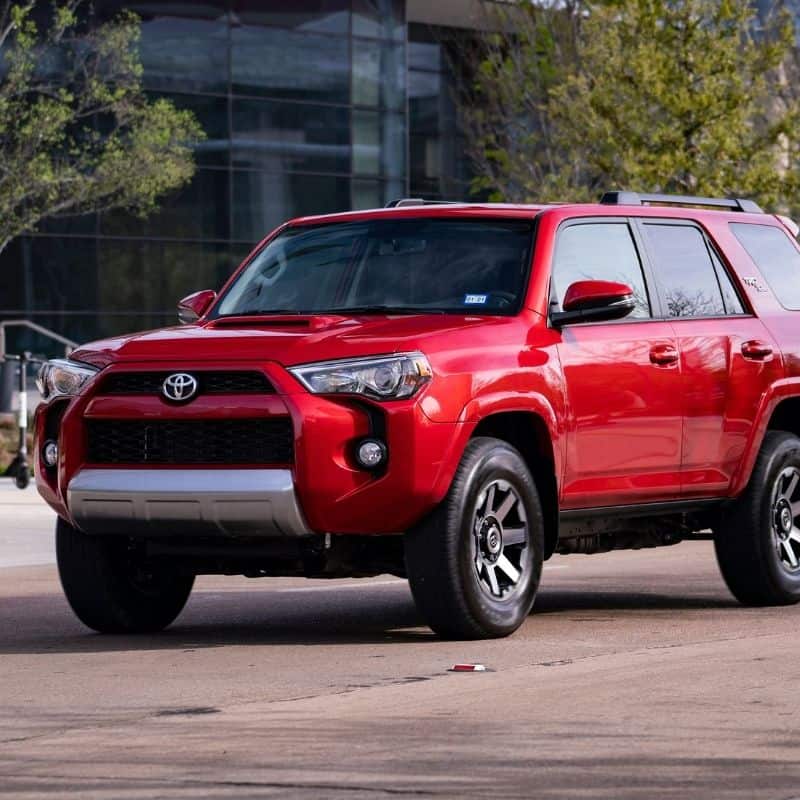
Is Vinyl Wrapping Legal?
In most states, car wrapping is legal, even if it means your car might change colors. The reason for it being legal is because the change isn’t permanent. But, this doesn’t mean that states have particular laws and regulations regarding the topic.
Let’s say that you’re using your 4Runner to promote aftermarket offroad components. Well, some states ban these as they consider them moving billboards. Also, some homeowner’s associations might not allow vehicles with advertising to park outside homes.
Finally, you might have to register your vehicle again, as it is now a commercial vehicle. These conditions apply if you’re using your car to promote a product. If you only want to change its looks, then there’s no problem. As we’ve said in other articles, be sure to check your local laws to avoid any unnecessary hassle.
That’s A Wrap
This article wanted to answer how much it costs to wrap a Toyota 4Runner. It costs from $1,500 upwards to vinyl wrap a Toyota 4Runner, with an average job costing $3,500 and more expensive jobs starting at $6,000.
A vinyl wrap consists of covering the vehicle’s body with a PVC material. It comes with plastics, adhesives, and other components that allow it to conform to all the curves and corners of your car.
When done right, a wrap can last five years or more. Caring for your vinyl wrap is essential to ensure that it lasts as long as possible. Ideally, you shouldn’t use high-pressure washers and abrasive products. You should clean your car with a soft rag and non-abrasive cleaners.
The elements, such as extreme sun, snow, and rain, can also damage your vinyl wrapper. Ideally, you should keep your car in a garage. If this isn’t possible, then you can consider adding ceramic protectors to your vinyl. These increase the material durability after application but do not interfere with the wrapping process.
A Toyota 4Runner is an adventurer’s car. Many install bigger tires, bumpers, and lights. And, one of the easiest ways to change its looks is by wrapping it. So, with this article, you’re a step closer to making it your dream car.
More 4Runner Resources
If you enjoyed reading about the Toyota 4Runner, you will surely appreciate my other related articles. These articles delve deeper into specific aspects of the 4Runner such as its off-road capabilities, interior design and technology features.
Additionally, I have compared the 4Runner to other popular SUVs in its class to help you make an informed decision about your next vehicle purchase. Give them a read; I am sure you will find them as interesting and informative as the first article.

